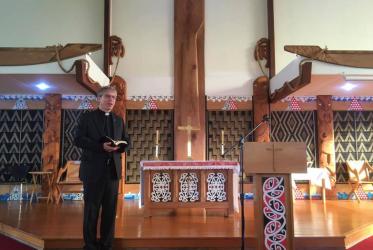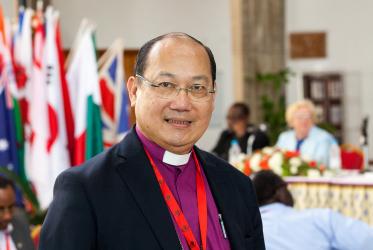Displaying 61 - 80 of 123
WCC Executive Committee issues statement on climate justice
25 November 2016
New videos help congregations hasten HIV response
20 October 2016
WCC general secretary visits Aotearoa New Zealand
10 October 2016
GEM school ends with hope for a better tomorrow
08 September 2016
A just financial and economic architecture is possible, students find
08 September 2016
New Executive Committee members elected in Trondheim
28 June 2016
Voices from HIV workshop reflect deep impact
07 April 2016
"I hit the ground running": Katalina Tahaafe-Williams
16 February 2016






